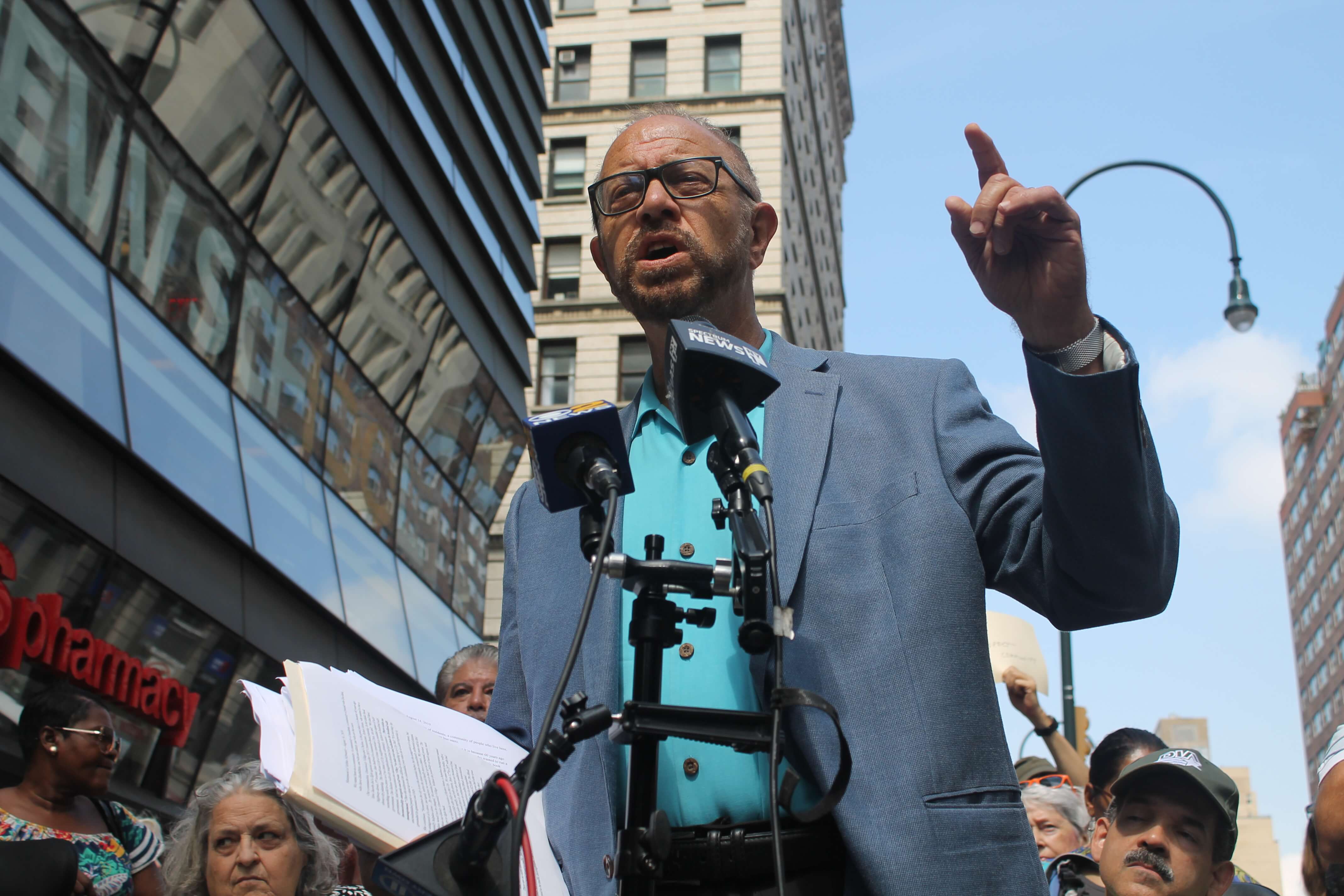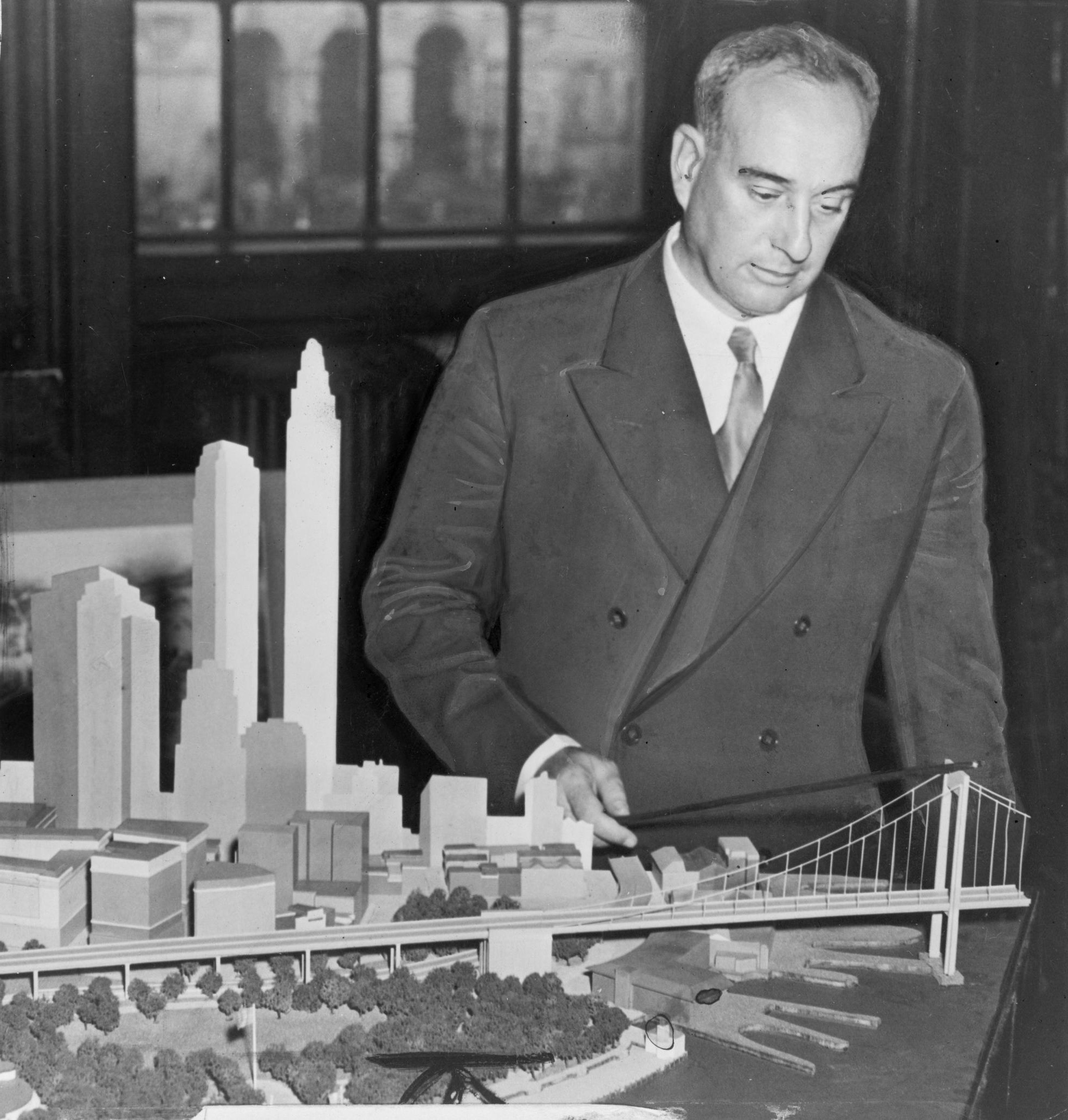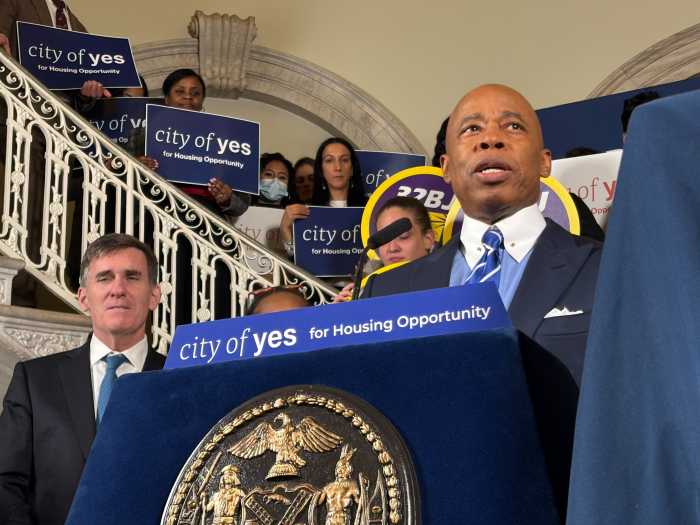BY QUINN RAYMOND | Ask any New York City history buff about the ultimate legacy of Robert Moses, and she’ll probably say something like, “He did a few good things, but in the end, he’ll be remembered for blocking mass transit from his state parks, to keep poor — as in, black — people out.”
Ask a lifelong Villager the same question, and he might seethingly add, “And he nearly wiped out our neighborhood for a highway.”

It was Jane Jacobs’s community organizing that saved the Village from being sacrificed to Moses’ love affair with the automobile. I have to wonder what she would make of local activist Arthur Schwartz’s current lawsuit. Schwartz is fighting critical improvements to the M14 bus in order to preserve congested lanes for dangerous, polluting cars and trucks.
Some local history: A decade ago, I helped organize a campaign to save the M8 bus, which was then on the chopping block. A total of 3,609 neighbors from Avenue D to West St., signed our successful petition to save the bus. Notably, longtime community activist and District Leader Arthur Schwartz was not one of them. Since then, his view of mass transit has shifted from indifferent to hostile.

Like Moses, Schwartz has had a long, dedicated career of public service. Unfortunately, none of that may be remembered by future generations. Instead he’ll be the guy who used his power and legal acumen to keep lower-income people of color from getting to their jobs — just as Moses kept them from getting to the beach. This is especially odd, since Schwartz recently compared his critics to the Klan.
Let me be clear: Unlike Moses — whose hatred of people of color was well-documented, unambiguous, and expansive — I’m not calling Schwartz a racist. His long career is the story of a man who has sought justice for the powerless at (almost) every turn. But the policy he’s fighting for is both racist and classist, and no amount of progressive bona fides can get around that.
Folks like Schwartz who choose to drive in the Village are very different (racially, economically) from the folks who rely on buses to get to their jobs, schools and doctors appointments. We know this because of the study Community Service Society did during the congestion pricing fight.
And while I’m singling Schwartz out, he’s not the only limousine liberal (or SUV socialist?) in our city. Across the river in Brooklyn, there are similar “progressives” fighting against a shelter for women and children in Park Slope. There are countless stories like this across our ostensibly left-wing city. These kind of activists must be out-organized and defeated — at community board meetings, but also in Schwartz’s case, at the ballot box.
The difficult reality is that the chasm between what we say we believe versus our actual deeds is a universal condition. This is the central moral question, and it’s a tough one.
Framed another way: There’s a little bit of Arthur Schwartz in all of us, and when it comes out we need to take a step back, look at the big picture, and think of our legacies.
Quinn Raymond is an IT security consultant who grew up and lived in the Village for 30 years. He currently lives in Brooklyn Heights.





































